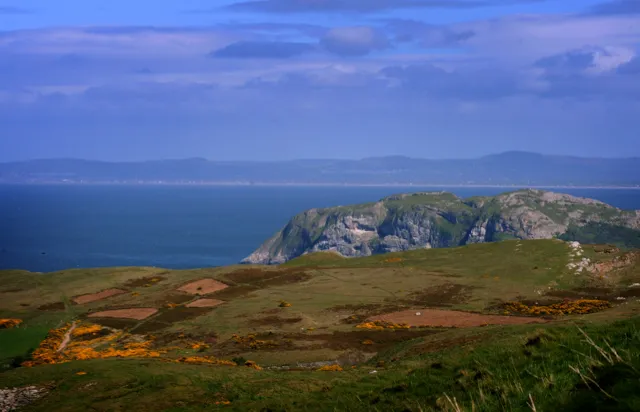Parc Farm, on the summit of the Great Orme near Llandudno, North Wales, is being sold by the National Trust, so that the new tenant can help the countryside to recover and so nature can begin to thrive once more.
It is being offered at a snip at just £1 a year to give a potential shepherding star a helping hand to start out in farming, at a time when costs are crippling the industry and preventing young farmers from making their mark.
No herd of sheep? Not a problem, as not only will the 10 year Farm Business Tenancy be offered at less than the cost of two stamps, but conservation charity Plantlife has pledged to buy the flock of sheep needed for the tenant to graze the Great Orme land. Remember to bring your own sheepdog though.
Colin Cheeseman, Head of Plantlife Cymru, said: “The sheep will help to revive the special limestone grasslands and heathlands to their former glory.”
The unique tenancy covers the 145-acre farm, the farmhouse and grazing rights over an additional 720 acres, covering most of the summit.

The Great Orme is situated right on the northern edge of Wales, overlooking Anglesey, the Isle of Man and the Lake District on a clear day. The area is designated as a Site of Special Scientific Interest (SSSI) and a Special Area of Conservation (SAC).
With tourist attractions including a cable car, artificial ski slope, copper mines and landscape gardens, it’s not surprising that the Great Orme welcomes more than 600,000 visitors per year - an additional challenge for anyone wanting to run the farm.
Last year, the National Trust bought the farm and associated land to ensure the survival of its internationally rare habitats and species. Some of them, including two butterfly species, are found nowhere else on earth.
The conservation charity is focussed on trying to reverse what it calls an “alarming decline in wildlife,” as it reports that 60% of native species have waned in the last fifty years.

Parc Farm, and the surrounding coastal headland, requires a “nature-first approach” which goes against the grain of some modern farming methods.
William Greenwood, General Manager of the National Trust, said: “Unless we implement a very specific grazing regime, we will not see these most fragile habitats recover.
“For the benefit of the Orme, we’re looking for a tenant who sees a productive farm as one which maintains healthy wildlife and encourages visitors to act for nature, as well as produce good, healthy food.”
He added: “To give him or her a head start and the best chance of success, we’re taking way the financial pressure of the rest for the farm, the grazing rights and the farmhouse each year.”
The site was also at risk of being developed into a golf course, threatening the rare species and habitats that occupy it.

Vanessa Griffiths, Assistant Director of Operations for the National Trust, said: “With a place as special as Parc Farm, it is essential that we take a long term view with conservation and farming.
“The National Trust is putting the needs of the landscape and nature first, and helping the next generation of farmers to get a foothold in the industry.”
Director of the National Farmers Union Cymru, John Mercer, added that Parc Farm “represents an exciting yet challenging opportunity for somebody to enter farming, and balance conservation, farming and public engagement.”